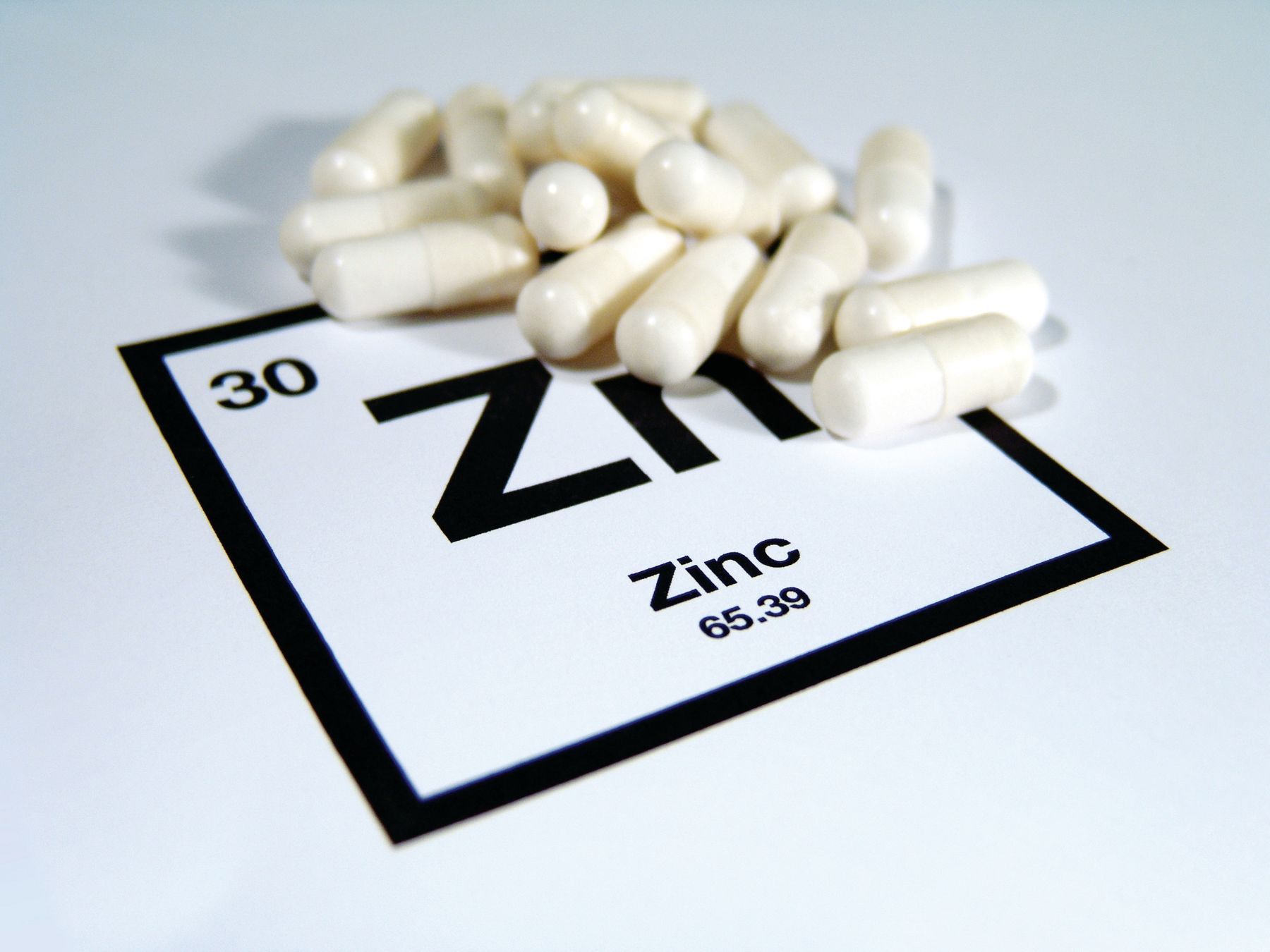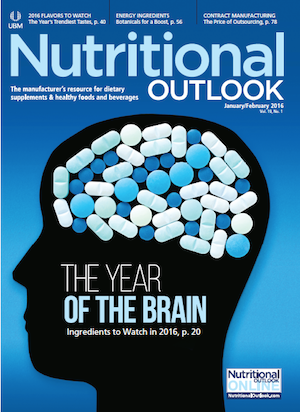2016 Ingredient Trends to Watch for Food, Drinks, and Dietary Supplements: Zinc
Move over, magnesium! Here comes zinc.
Photo © iStockphoto.com/danleap

Magnesium may be the mineral du jour, but another is making headlines now. “We believe zinc is about to become the next star in the minerals category,” says Rocio Aramburo, market development manager, health and nutrition, Jungbunzlauer (Newton Center, MA).
“Profiting from its various health benefits and its relatively low cost in use, zinc sales in supplements have shown increased growth since 2012 and are starting to catch up with calcium, magnesium, and iron, the category leaders," Aramburo adds. She points out that in the European Union, zinc has already received more positive opinions (18 total) from the European Food Safety Authority than any other mineral.
Market researchers also confirm healthy growth for zinc. According to SPINS natural products specialist Kimberly Kawa, U.S. zinc sales are growing in all channels and are doing especially well in the conventional multi-outlet space, where sales grew 79.6% over the previous year.
What’s driving growth? Growing research, says Max Motyka, consultant to Albion Minerals (Clearfield, UT). "It can be seen that there has been an increased interest in zinc’s clinical effects,” he says.[1][2][3][4][5][6] Newer interest areas include zinc’s role in metabolic syndrome–associated inflammation, as well as cognition, memory, and ADHD. Diabetes management is always key, he adds. Zinc serves numerous other health facets, too: bone health, sports nutrition, and men’s health, says Markus Gerhart, Jungbunzlauer’s European zinc product manager.
As such, zinc is infiltrating other categories beyond longtime leaders immune health and blood sugar support, both in supplements and functional foods.
“For some time, zinc was overlooked other than for immune-system products; however, with the increased research into zinc’s importance, that is rapidly changing," Motyka says. Take men’s health and zinc’s role in helping maintain normal testosterone levels. Zinc sales in U.S. specialty men’s supplements shot up last year, up 31.6% compared to 2014, says Innova Market Insights. In the U.S. supplements aisle, zinc also grew in meal replacements, oral feeding, specialty women’s supplements, children’s health, beauty products, and vitamins and minerals. In the global market, zinc is steadily strong in baby formula and milk products, and its presence is also growing in tube-feeding formulas, meal replacements, beauty products, and children’s supplements.
For Albion, this means zinc sales are up and outpacing market growth and now close behind the company's leading performer, magnesium. Alice Chin, director of quality control for Ingredientsonline.com (La Mirada, CA), says the company expects zinc prices to remain stable this year.
Developed nations aren't necessarily zinc deficient, but there is still a need for zinc all around. Western diets are often replete in dietary sources of zinc-primarily foods of animal origin, including meat, liver, fish, milk, and cheese-says Aramburo. But for those on specialty diets, such as vegetarians, zinc deficiency is higher because plant-derived zinc is generally less bioavailable. There are also communities suffering from health conditions that put them at risk of zinc deficiency. “Conditional causes of zinc deficiency are often disease-related, stemming from problems like Crohn’s disease or cystic fibrosis,” Motyka says. Plus, there is increased need for zinc in pregnancy. Then there are the elderly, who are often zinc deficient.
The opportunities for zinc are there, says Motyka. “It is not a problem for the zinc market to grow in the United States due to the increased incidence of conditional-induced zinc deficiencies and the finding that 40% of Americans over 55 years of age have diets that are zinc deficient. People over the age of 55 are the fastest-growing segment of the U.S. population. In this segment, the need for zinc is especially important for cognition and immune system function.”
Jungbunzlauer’s Gerhart agrees that the future for zinc is bright: “Awareness of zinc and its various beneficial effects on human health has grown steadily in recent years. Its physiological versatility, which offers various options for new product concepts, combined with its relative low cost in use, demonstrates why zinc is forecasted to continue its growth within fortified foods and supplements.”
READ NEXT
Ingredients to Watch 2016: Omega-3
Jennifer Grebow
Editor-in-Chief
Nutritional Outlook magazine
jennifer.grebow@ubm.com
References:
[1] Liu B et al., “Deficient zinc levels and myocardial infarction: association between deficient zinc levels and myocardial infarction: a meta-analysis.” Biological Trace Element Research, vol. 165, no. 1 (May 2015): 41-50
[2] Vela G et al., “Zinc in gut-brain interaction in autism and neurological disorders,” Neural Plasticity. Published online March 23, 2015
[3] Sun GX et al., “Relationship between serum zinc levels and attention deficit hyperactivity disorder in children,” Chinese Journal of Contemporary Pediatrics, vol. 17, no. 9 (September 2015): 980-983
[4] Cabrera AJ, “Zinc, aging, and immunosenescence: an overview,” Pathobiology of Aging and Age Related Diseases. Published online February 5, 2015.
[5] Ma Y et al., “The relationship between serum zinc level and preeclampsia: a meta-analysis,” Nutrients, vol. 7, no. 9 (September 15, 2015): 7806-7820
[6] Ranasinghe P et al., “Effects of zinc supplementation on serum lipids: a systematic review and meta-analysis,” Nutrition and Metabolism, Published online August 4, 2015.

Polyphenols: The next generation of prebiotics is ready for liftoff
April 21st 2025Explore the prebiotic health benefits of polyphenols and the positive impact they may have on digestive and immune health. Polyphenols, such as those found in European black elderberry, may be an ideal solution for manufacturers trying to break into the digestive health space.

.png&w=3840&q=75)

.png&w=3840&q=75)



.png&w=3840&q=75)



.png&w=3840&q=75)























